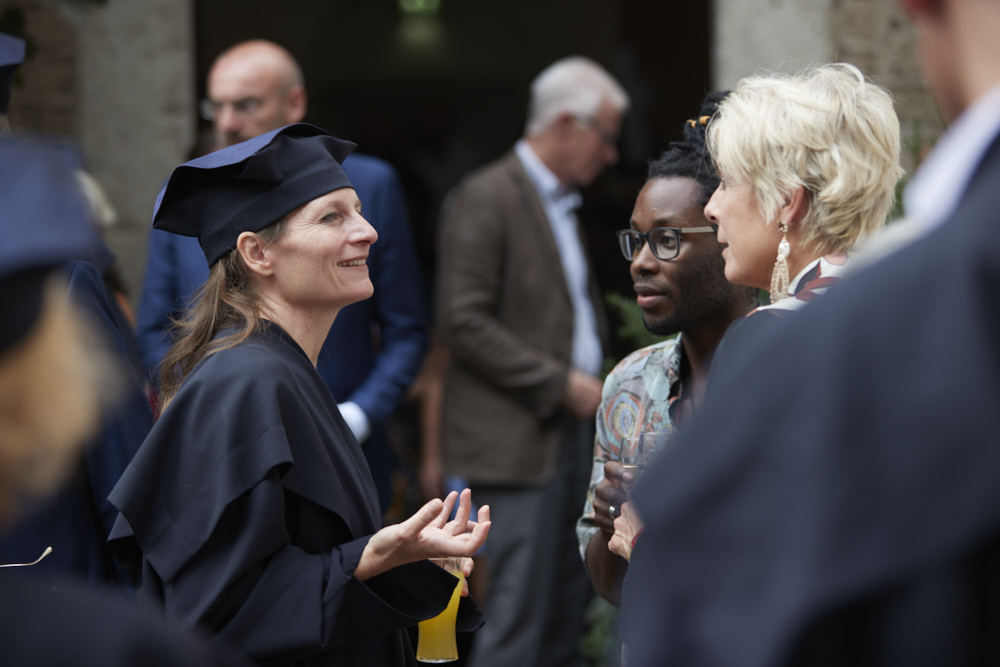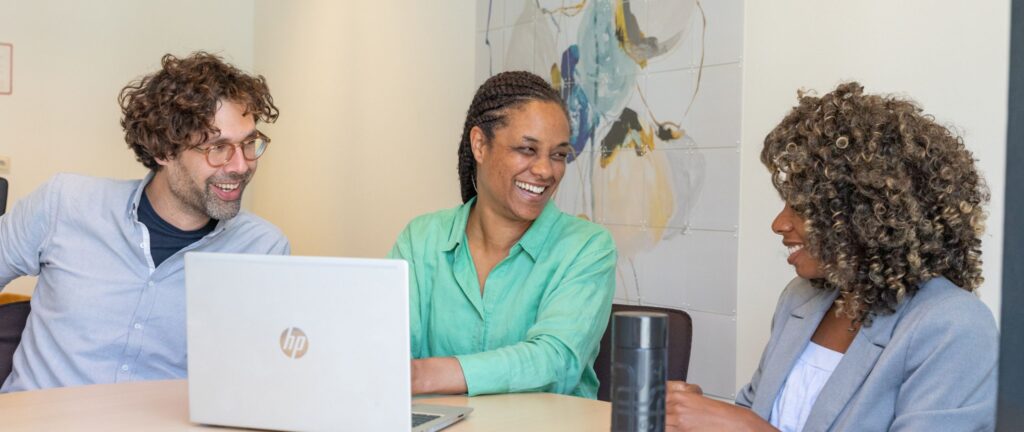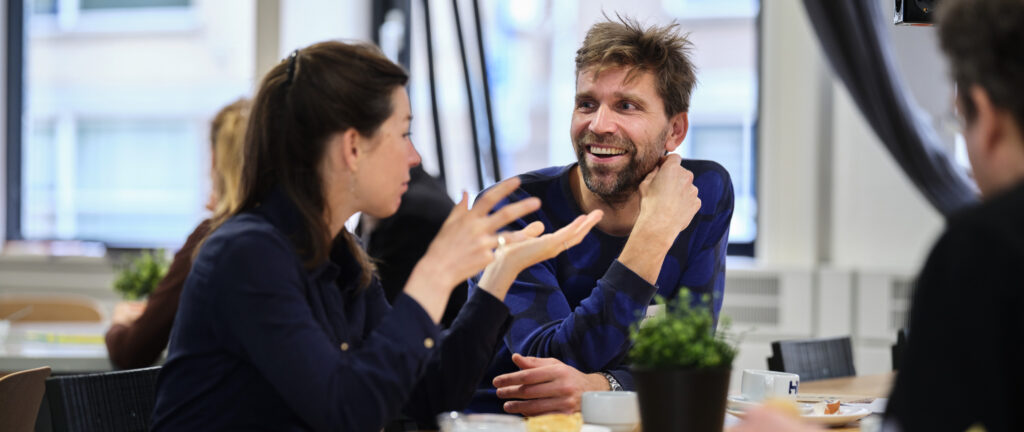Exchange programme

Scroll directly to
The University of Humanistic Studies is a small-scale university located in the heart of the medieval centre of Utrecht. We offer exchange programmes for both Bachelor’s and Master’s students via the Erasmus+ programme. You can follow English taught courses that form part of our regular Bachelor’s and Master’s programmes, focusing on broad academic development in the fields of philosophy, sociology and psychology. These classes discuss topics that relate to worldviews, existential questions and questions relating to the pursuit of a humane society. We also pay considerable attention to the personal and professional development of our students.
Bachelor’s students
The Bachelor’s exchange programme is a broad, discerning interdisciplinary programme. The programme focuses on two main concepts: Giving meaning to life, and humanisation. For example, you will study meaning-making from a psychological perspective, and conduct research on the notion of citizenship. In each case, academic knowledge is linked to practical skills. The lectures are interactive, and you’ll learn to work together in groups.
The programme consists of four courses, all of which are rewarded with 7.5 ECTS and offered in the first semester:
- Psychology in Humanistic Studies
- Promises and Pitfalls of Citizenship
- Introduction to Ethics
- Meaning-making in Contemporary Society
Master’s Students
The Master’s exchange programme is interdisciplinary, combining insights from the social sciences and humanities. Themes such as humanisation and meaning-making play a structuring role in the programme. You will study multiple angles on questions such as: How do globalisation processes influence a meaningful life in a humane society? What does aging well mean? and What is the social responsability of organisations?
You’ll explore the different social debates encountered in professions such as counselling, education, organisation and research, throughout linking academic knowledge to practical skills in a personal and interactive environment.
The programme consists of 7 courses, all of which are rewarded with 7.5 ECTS and offered in the first semester:
- Philosophy of Science
- Pursuing Social Justice: Redistribution, recognition and representation
- Transitional Justice and Human Rights: an interdisciplinary perspective
- Humanistic Practices in a Globalising World
- Moral and Citizenship
- Ethics of Care: an introduction
- Education for Flourishing in a Sustainable World
Stories
How to apply
If you want to study at the University of Humanistic Studies as an exchange student, you can do so by means of a bilateral agreement between your home university and the University of Humanistic Studies. Contact the international office of your home university to check if there is an exchange agreement with the University of Humanistic Studies.
Erasmus+ programme
The University of Humanistic Studies offers exchange programmes for both Bachelor’s and Master’s students via the Erasmus+ programme. We want to promote global citizenship of our students and teachers and to be able to carry out the university’s international mission through them. We recognize the importance of Erasmus+, the European programme for international initiatives in higher education.
Questions?
Please contact Joanne Maloney from the International Office. She is Erasmus coordinator for incoming and outgoing students.






